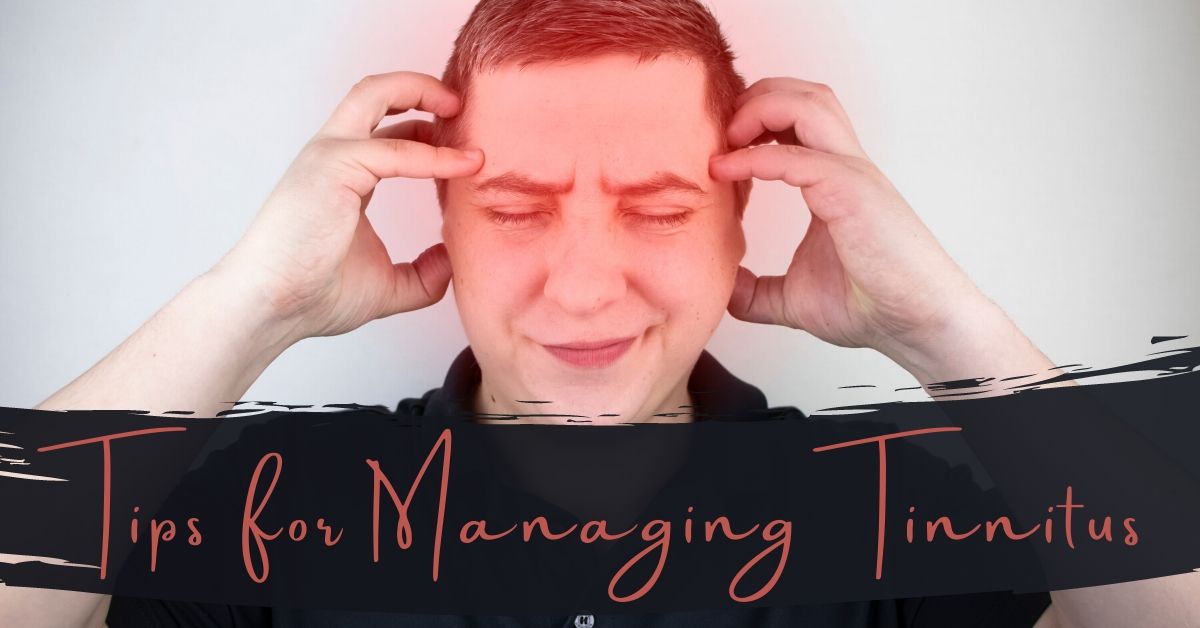- Common Hearing Aid Problems & How to Fix Them - June 14, 2021
- Why People Avoid Treating Hearing Loss — and Why You Should Schedule a Hearing Test! - May 21, 2021
- Common Hearing Aid Problems & How to Fix Them - May 14, 2021
Tinnitus is the experience of hearing an ongoing buzzing or ringing noise in one or both ears. According to the Hearing Health Foundation, at least 10% of people in the U.S. are regularly impacted by tinnitus and 16 million people seek medical attention. Tinnitus tends to be a symptom of an underlying health condition that can be challenging to identify and diagnose.
The first step of managing this symptom is visiting your general doctor who will examine your ears and check for infection or earwax buildup. If the issue is more complex, they will likely refer you to a medical professional who specializes in ears and hearing health. At our practice, we provide comprehensive tinnitus services.
Causes
Tinnitus can be caused by a variety of factors that range from chronic health conditions, injury, to infection. Common causes include the following:
- Hearing Loss: which is the most common cause, estimated at nearly 90%. Hearing loss is a medical condition that impacts 1 in 8 people. It can be caused by other medical conditions, aging, genetic history, and environmental exposure to loud noise. Medical conditions such as cardiovascular disease, hypertension, diabetes, and dementia can contribute to the development of hearing loss. In addition to inheriting specific genes, and absorbing loud noise.
- Exposure to Loud Noise: absorption of loud noise can cause short-term symptoms or long-term damage to hearing. Attending concerts, sporting events, operating loud machinery, using headphones to listen to music etc. can impact the delicate hair cells in the inner ear. These hair cells help translate soundwaves into electrical signals for the brain to process. Loud noise can cause these tiny hair cells to lose sensitivity. This can be short-term or, if loud noise is constantly absorbed, it can lead to permanent damage. Tinnitus is a common symptom caused by exposure to loud noise.
- Earwax Buildup: the accumulation of earwax in the ear canal can increase bacteria, causing irritation or infection.
Though these are common causes, tinnitus can result from more rare conditions. This includes head or neck injuries, blood vessel issues, muscle spasms in the ear, and certain medications. It is critical to be thoroughly evaluated so you can treat the underlying cause of your tinnitus!
Tips for Tinnitus Management
Tinnitus can be an unpleasant experience. The sound which is most commonly described as buzzing or ringing; can also be hissing, clicking, or a humming noise can be really disruptive. You may find that your tinnitus is impacting the quality of your sleep, ability to concentrate, and perform daily tasks. You may feel more fatigued, irritable, and stressed. There are useful ways you can manage your tinnitus, reducing its intensity and impact on your daily life. A few helpful tips include:
- Alleviate Stress: reducing stress and finding useful ways to relax can provide relief. Using meditation, yoga, or other calming activities can relax your muscles and slow your breath which can alleviate the severity of your tinnitus.
- Use Ambient Noise: in quiet (or silent) environments, tinnitus can seem louder and more intense. Using ambient noise can prevent this and mask the tinnitus. You can do this by playing soft music, turning on the TV, using a white noise machine etc.
- Protect Hearing: reducing the absorption of loud noise can minimize tinnitus. You can protect your hearing by wearing headphones, earmuffs, earplugs etc. which decrease your exposure to loudness.
- More Sleep: Tinnitus can impact the quality of your sleep which then can worsen your tinnitus. Try and break this cycle by actively creating an environment that helps you sleep well (adjust lights, use essential oils, comfortable bed and pillows etc.).
- Be Active: Exercise not only distracts you from your tinnitus but enhances your mood, sleep, and reduces stress which can alleviate tinnitus. Exercise can also reduce your risk of developing the medical conditions that can cause tinnitus.
- Limit Consumption of Triggers: consumption of nicotine, caffeine, and alcohol can worsen tinnitus. It could be helpful to reduce your consumption and observe how that impacts your tinnitus.
Tinnitus can be really bothersome. Identifying and treating the underlying cause can reduce (or eliminate) tinnitus. Also, practicing useful strategies can help you effectively manage your tinnitus! If you have been struggling with tinnitus, contact us today to learn more about our tinnitus services.

